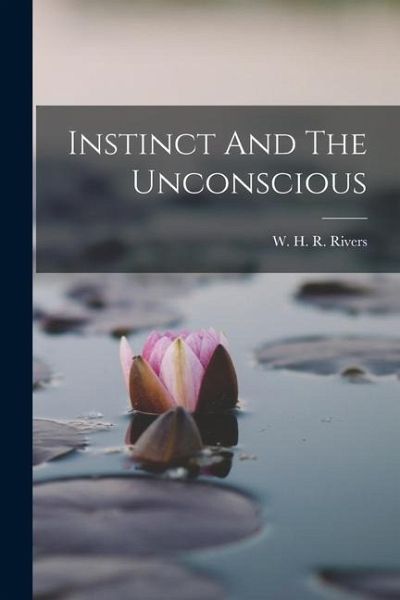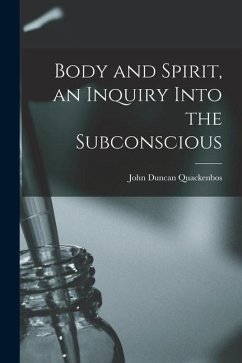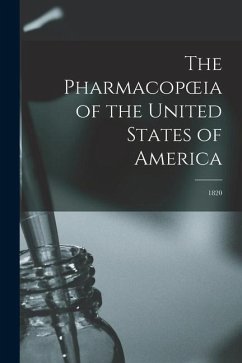W. H. R. Rivers
Broschiertes Buch
Instinct And The Unconscious
Versandkostenfrei!
Versandfertig in über 4 Wochen
Weitere Ausgaben:

PAYBACK Punkte
11 °P sammeln!




Instinct And The Unconscious
W.H.R. Rivers was a distinguished early twentieth-century English anthropologist, neurologist, ethnologist, and psychiatrist, known for his pioneering work in several fields. Born in 1864, Rivers made notable contributions to the understanding of the human mind and society. Perhaps most famously, he authored 'Instinct and the Unconscious: A Contribution to a Biological Theory of the Psycho-Neuroses' (1920), which provided innovative insights into human psychology and the role of instinctual behavior. His literary style is often categorized by a clinical approach, reflecting his scientific background, and seamlessly integrates empirical observations with theoretical discussions. Rivers's interdisciplinary approach bridged the gap between medicine and anthropology. He gathered much of his data through fieldwork, notably during the Torres Strait Expedition of 1898, where he conducted pioneering studies of the inhabitants' sensory processes and social structures. His work laid the groundwork for future anthropological and psychological research, including the development of participant observation as a method. Rivers's influence extended to his service as a psychiatrist during World War I, where he treated soldiers for shell shock, now known as post-traumatic stress disorder (PTSD), and argued for the importance of therapy. Rivers passed away in 1922, leaving behind a legacy that has been critical to the development of social sciences.
Produktdetails
- Verlag: Creative Media Partners, LLC
- Seitenzahl: 260
- Erscheinungstermin: 27. Oktober 2022
- Englisch
- Abmessung: 234mm x 156mm x 14mm
- Gewicht: 367g
- ISBN-13: 9781015792708
- ISBN-10: 1015792707
- Artikelnr.: 67260758
Herstellerkennzeichnung
Libri GmbH
Europaallee 1
36244 Bad Hersfeld
gpsr@libri.de
Für dieses Produkt wurde noch keine Bewertung abgegeben. Wir würden uns sehr freuen, wenn du die erste Bewertung schreibst!
Eine Bewertung schreiben
Eine Bewertung schreiben
Andere Kunden interessierten sich für








![The Chemist and Druggist [electronic Resource]; Vol. 32 (28 Jan. 1888) Cover The Chemist and Druggist [electronic Resource]; Vol. 32 (28 Jan. 1888)](https://bilder.buecher.de/produkte/65/65492/65492362n.jpg)

![The Chemist and Druggist [electronic Resource]; Vol. 51, no. 9 (28 Aug. 1897) Cover The Chemist and Druggist [electronic Resource]; Vol. 51, no. 9 (28 Aug. 1897)](https://bilder.buecher.de/produkte/66/66166/66166638n.jpg)
![The Chemist and Druggist [electronic Resource]; Vol. 37 (29 Nov. 1890) Cover The Chemist and Druggist [electronic Resource]; Vol. 37 (29 Nov. 1890)](https://bilder.buecher.de/produkte/65/65495/65495861n.jpg)
![Proceedings of the North Carolina Pharmaceutical Association ... Annual Meeting [serial]; v.8 (1887) Cover Proceedings of the North Carolina Pharmaceutical Association ... Annual Meeting [serial]; v.8 (1887)](https://bilder.buecher.de/produkte/66/66147/66147338n.jpg)
![The Chemist and Druggist [electronic Resource]; Vol. 66, no. 16 = no. 1317 (22 Apr. 1905) Cover The Chemist and Druggist [electronic Resource]; Vol. 66, no. 16 = no. 1317 (22 Apr. 1905)](https://bilder.buecher.de/produkte/65/65579/65579771n.jpg)
